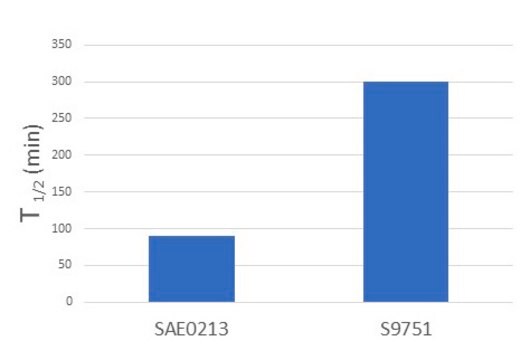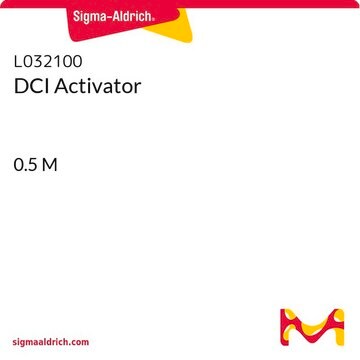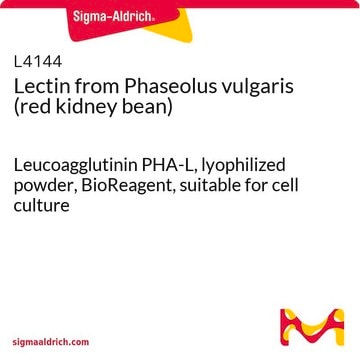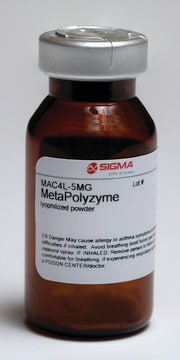SAE0214
Leucoagglutinin from P. vulgaris, recombinant
Expressed in P. pastoris, lyophilized powder, suitable for cell culture
Synonym(s):
PHA-L, Phytohemagglutinin-L, Red Kidney Bean Lectin
Sign Into View Organizational & Contract Pricing
All Photos(2)
About This Item
UNSPSC Code:
12352202
NACRES:
NA.21
Recommended Products
General description
Lectin from Red Kidney Bean has long been used in a wide variety of applications that require carbohydrate binding including but not limited to T-cell proliferation, leucoagglutination, glycoconjugate capture and more. The native form of lectin from Red Kidney Bean is composed of 2 isolectins (PHA-L and PHA-E) which combine in heterotetromeric combinations that elicit a variety of properties. This recombinant form is strictly the leucoagglutinin (PHA-L) isolectin only, so the erythroagglutinin (PHA-E) isolectin is absent in this product. This allows for more selective performance because there is no chance of PHA-E contamination as seen in native source products.
Biochem/physiol Actions
Kidney bean lectin has a history of being used as a phytohemagglutinin because of its ability to agglutinate blood cells. This isolectin (PHA-L) specficially is the Leucoagglutinin type and can be used for leucoagglutination and as a mitogen. As a lectin, it is known to have some selectivity for binding of β1-6 branched N-glycans.
Storage Class Code
11 - Combustible Solids
WGK
WGK 3
Flash Point(F)
Not applicable
Flash Point(C)
Not applicable
Certificates of Analysis (COA)
Search for Certificates of Analysis (COA) by entering the products Lot/Batch Number. Lot and Batch Numbers can be found on a product’s label following the words ‘Lot’ or ‘Batch’.
Already Own This Product?
Find documentation for the products that you have recently purchased in the Document Library.
A Useful Guide to Lectin Binding: Machine-Learning Directed Annotation of 57 Unique Lectin Specificities
Daniel Bojar
ACS Chemical Biology, 17(11), 2993-3012 (2022)
Related Content
Discover cancer research resources with modeling and profiling tools for cell culture, genomics, biomarkers, and more to help maximize your cancer research.
Our team of scientists has experience in all areas of research including Life Science, Material Science, Chemical Synthesis, Chromatography, Analytical and many others.
Contact Technical Service







